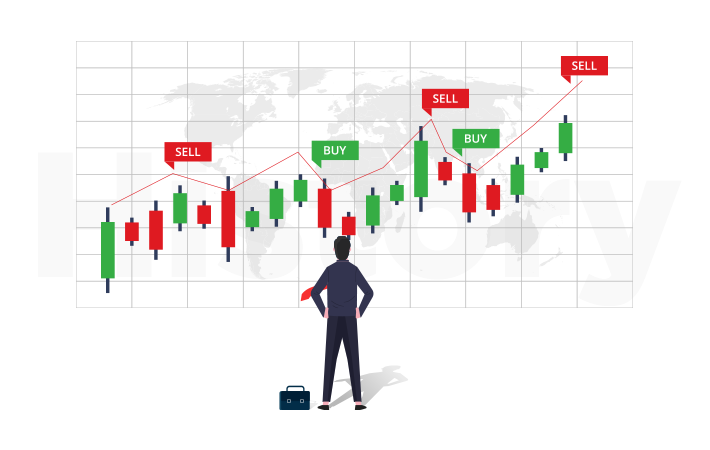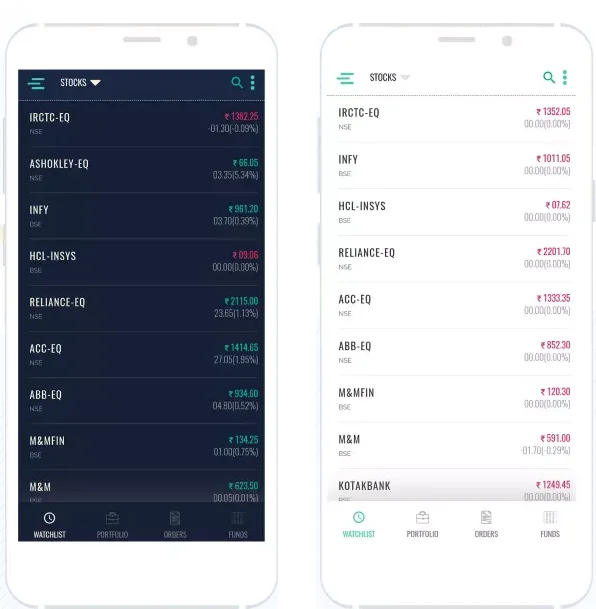What Are Markets?

Ever since humans have interacted with each other they have been exchanging goods either as barter or for a price or as a friendly exchange. But as civilization dawned a proper marketplace started taking shape.
The broad definition of the market is a gathering of people meant for the purchase and sale of goods and services. Markets and their functioning play an important part in an economy. A strong economy generally has a well-functioning marketplace.
Before going deeper into the market, we need to first understand the two main types of participants.
Buyer: A buyer is a person, group of persons or an entity who purchases a good, service, or asset.
Seller: A seller is a person, group of persons or an entity that offers goods, services, or assets in return for payment.
When a buyer and a seller meet to exchange a good, service, or asset, at an agreed price to be delivered at a predetermined time, a transaction is considered to be complete.
The buyer and a seller together form the key elements of a market.
Apart from buyers and sellers, a market is distinguished by the goods that are sold. For example, we may have a vegetable market, fish market, flower market, steel market, or a share market. There are sub-classification of a broad market as a vegetable market may have a small potato market or onion market. Similarly, a share market has a cash market and derivatives market.
Types of market
Markets are generally characterized based on the competition levels between buyers and sellers. There are four main types of market. An economy can have all four markets but for different goods and services. Generally, one type of market will be present for a good at a particular location.
Monopoly:
In a monopoly market, there is only one seller. A single company or a vendor has complete control of the market. They can set the prices according to their wishes and deliberately subdue supplies to keep prices higher. Consumers have little choice but to pay what the company demands.
Companies that have a patent on their product enjoy a monopoly on it. Patented products in the pharmaceutical sector enjoy a monopoly of 20 years since they have spent a lot of money and time in researching it.
Oligopoly:
In an oligopoly market, there are few sellers but more buyers. They are a step above the monopoly market. The number of sellers is few probably because of the high cost of manufacturing these products or the high level of technology required to produce the final product.
Semiconductors fall in this category of the market where a handful of producers in the world produce them.
Monopolistic Competition:
Most products in the world are sold under a monopolistic competition environment. Each seller in the market has more or less the same product with a slight modification. The seller tweaks their products based on market study and consumer preference. Some products are sold at a premium than others because of added features.
Take the case of vegetable oils, where the essential product is the same but slight variations are added like those with medicinal properties and so on.
Perfect Competition:
Perfect competition is an ideal case where there are several buyers and sellers. The number of sellers is more but small. The retail segment where the number of sellers and buyers are many is where we see a market in perfect competition. Such a market exists where the products are homogenous, that is identical. In real life, such a market does not exist for tangible goods.
However, a share market is as close to perfect competition as can be. There are several buyers and sellers and all exchange the same product – shares. The company may differ, but each company will be a market that has several buyers and sellers.
Market and price discovery:
One of the key functions of a market is price discovery.
In a monopoly market, the seller decides the price and the buyer is in a take it or leave it situation.
In an oligopoly too the buyers have the upper hand as they are few in number.
In monopolistic competition, since the number of sellers is more a buyer to some extent has the power to decide the price.
But it is the perfect competition market where price discovery is real.
In the share market, stocks that are very liquid as close to being a perfect competition market. Here, since the number of buyer and sellers are high, no single force can decide the price, at least for a long time. The forces of supply and demand dictate the price of the stock.
However, in an illiquid stock, where there are either few buyers or sellers price discovery is skewed. If the sellers are more they would push down the stock and keep on selling at the sight of any buyer. Similarly, when the number of buyers is high and sellers are few, it becomes easy to manipulate the price of the stock.
It is advisable to stay away from illiquid stocks unless one has researched the stock well.
In the stock market, one can come across a company in a growth phase that is neglected by most investors and analysts. Such small companies have very low liquidity in the market and their shares are sparsely traded.
However, if an investor studies these companies well and understands and believes in the growth journey, then such companies can give very high returns in the long term. Volume picks up in such counters after the company consistently performs. And after it achieves a certain size analysts and investors will start chasing it, bringing in more buyers and sellers to the counter and helping in price discovery.
Conclusion
The market is a gathering of people meant for the purchase and sale of goods and services. Markets and their functioning play an important part in an economy. A strong economy generally has a well-functioning marketplace.
Apart from being a gathering of buyers and sellers, the market also has an important role to play – that of price discovery.
In the share market, the stocks where the liquidity is highest have the best price discovery and are difficult to manipulate.
Frequently Asked Questions (FAQs)
What is a market?
A market is a place where goods or services are exchanged between two entities called buyers and sellers. The textbook definition of the market is that it is a gathering of people meant for the purchase and sale of goods and services. Markets and their functioning play an important part in an economy. A strong economy generally has a well-functioning marketplace.
What are the different types of markets?
Markets are generally characterized based on the competition levels between buyers and sellers. There are four main types of market – monopoly, oligopoly, monopolistic competition, and perfect competition. An economy can have all four markets but for different goods and services.
What is a monopoly market?
A monopoly market is where there is only one seller. A single company or a vendor has complete control of the market. They can set the prices according to their wishes and deliberately subdue supplies to keep prices higher. Consumers have little choice but to pay what the company demands.
What is an oligopoly?
In an oligopoly market, there are few sellers but more buyers. They are a step above the monopoly market. The number of sellers is few probably because of the high cost of manufacturing these products or the high level of technology required to produce the final product.
Which market is closest to a real-life situation?
In real life, most markets are of monopolistic competition in nature. Each seller in the market has more or less the same product with a slight modification. The seller tweaks their products based on market study and consumer preference. Some products are sold at a premium than others because of added features.
What is an ideal market?
An ideal market is where, both, the number of buyers and sellers is high. This helps in the perfect competition which in turn helps in price discovery.
What kind of market is the stock market?
The share market is as close to an ideal market or a Perfect Competition market but only in cases with the number of shares changing hand is high. In the case of illiquid stocks, the market behaves like an oligopoly market where the control on the price is in the hands of either the buyer or sellers, depending on whose numbers are higher.


How Would You Rate This Chapter?
Next
Comments (0)